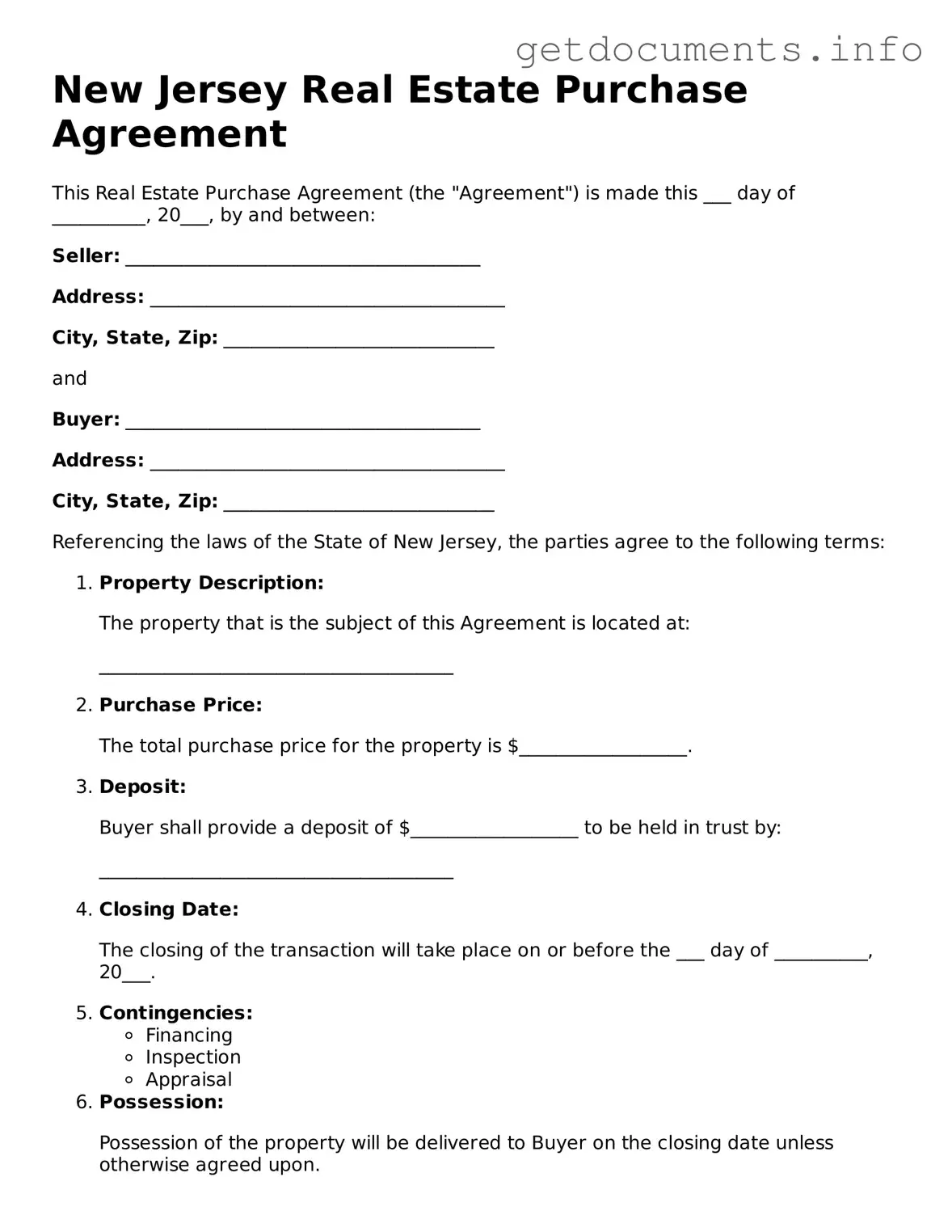Free Real Estate Purchase Agreement Template for New Jersey
The New Jersey Real Estate Purchase Agreement form is a legal document used to outline the terms and conditions of a real estate transaction between a buyer and a seller. This form serves as a crucial framework for the sale, detailing aspects such as the purchase price, property description, and closing date. Understanding this agreement is essential for both parties involved in the transaction.
To get started on your real estate journey, fill out the form by clicking the button below.
Access Real Estate Purchase Agreement Editor

Free Real Estate Purchase Agreement Template for New Jersey
Access Real Estate Purchase Agreement Editor
Got places to be? Complete the form fast
Fill out Real Estate Purchase Agreement online and avoid printing or scanning.
Access Real Estate Purchase Agreement Editor
or
⇩ PDF File
